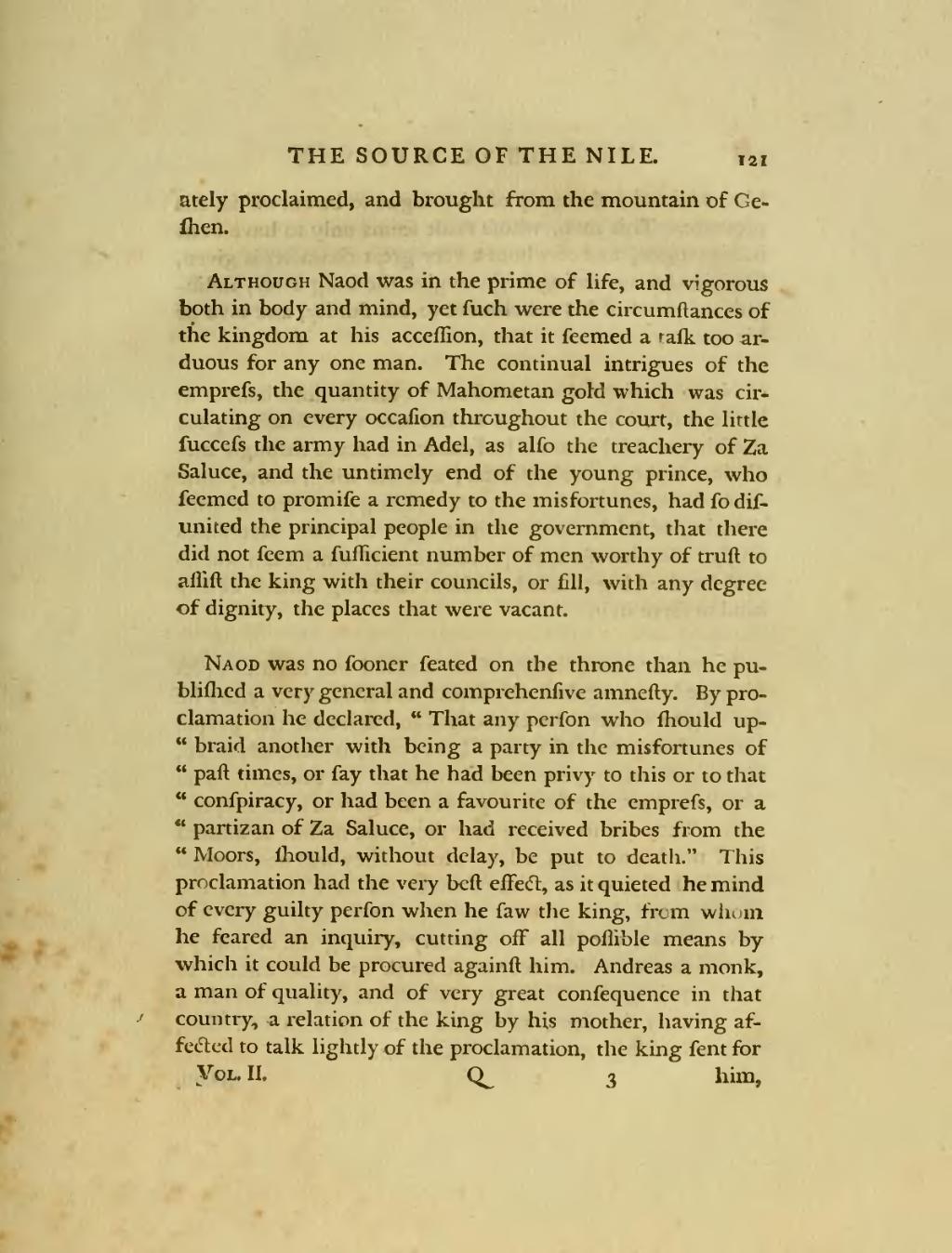ately proclaimed, and brought from the mountain of Geshen.
Although Naod was in the prime of life, and vigorous both in body and mind, yet such were the circumstances of the kingdom at his accession, that it seemed a talk too arduous for any one man. The continual intrigues of the empress, the quantity of Mahometan gold which was circulating on every occasion throughout the court, the little success the army had in Adel, as also the treachery of Za Saluce, and the untimely end of the young prince, who seemed to promise a remedy to the misfortunes, had so disunited the principal people in the government, that there did not seem a sufficient number of men worthy of trust to assist the king with their councils, or fill, with any degree of dignity, the places that were vacant.
Naod was no sooner seated on the throne than he published a very general and comprehensive amnesty. By proclamation he declared, "That any person who should upbraid another with being a party in the misfortunes of past times, or say that he had been privy to this or to that conspiracy, or had been a favourite of the empress, or a partizan of Za Saluce, or had received bribes from the Moors, should, without delay, be put to death." This proclamation had the very best effect, as it quieted he mind of every guilty person when he saw the king, from whom he feared an inquiry, cutting off all possible means by which it could be procured against him. Andreas a monk, a man of quality, and of very great consequence in that country, a relation of the king by his mother, having affected to talk lightly of the proclamation, the king sent for
